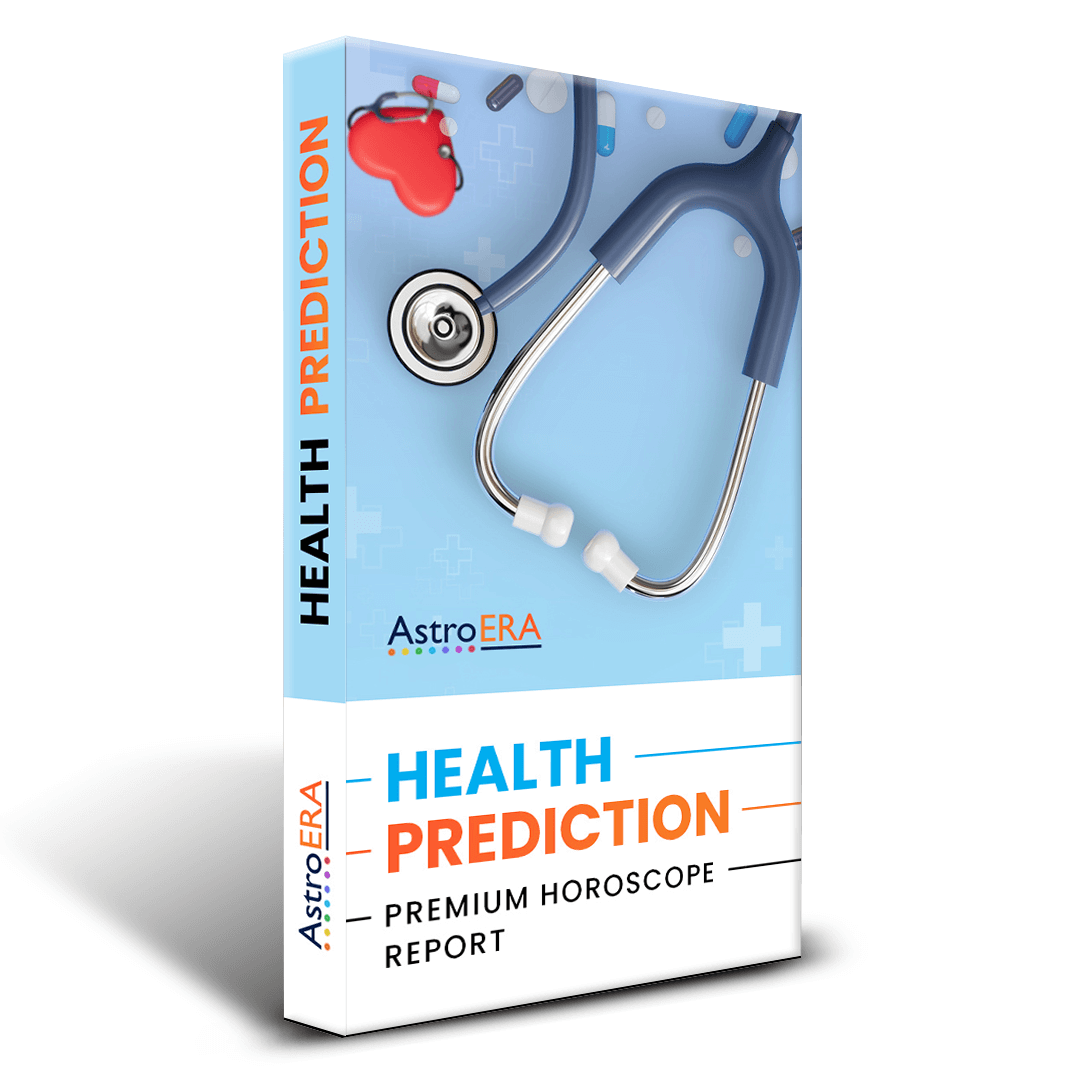Health prediction, also known as predictive healthcare or health forecasting, is the process of anticipating an individual's future health outcomes using data analytics and machine learning approaches. It seeks to find patterns in a person's health data, such as medical records, lifestyle factors, and genetic information, in order to predict their risk of getting particular diseases or ailments..

Number of Pages: 500
Health prediction can influence tailored treatment options, fitting medical interventions to an individual's specific risk profile and genetic makeup.
Average Rating :
Reviews 1993
You will receive a complete Health report in our Kundli AstroEra so you may learn about your favourite number, radical number, favourite planet, and many other things.
Health prediction, also known as predictive healthcare or health forecasting, uses data analytics and machine learning techniques to anticipate an individual's future health outcomes. It aims to identify patterns in an individual's health data, such as medical records, lifestyle factors, and genetic information, to predict their risk of developing certain diseases or conditions.
Health prediction offers several potential benefits, including:
The accuracy of health prediction depends on various factors, including the quality and completeness of the data, the complexity of the disease or condition being predicted, and the sophistication of the machine learning algorithms used. However, research suggests that health prediction models can provide valuable insights and improve healthcare outcomes.
Individuals can proactively engage in health prediction by:
Health prediction raises ethical concerns, including:
Addressing ethical concerns requires:
Health prediction is expected to play an increasingly important role in shaping the future of healthcare, including:
Implementing health prediction faces challenges, including:
Overcoming challenges requires:
Health prediction has the potential to significantly impact society by:
Customer reviews are important and valuable for us, your honest feedback about our products, services, and customer service matters.



Premium Life Horoscope Reports can be a valuable tool for self-discovery and personal growth. They can help you to understand yourself better, make informed decisions, and achieve your goals. However, it is important.
Copyright © 2023 Astroera. All Rights Reserved. | Web Design Company: Vega Moon Technologies